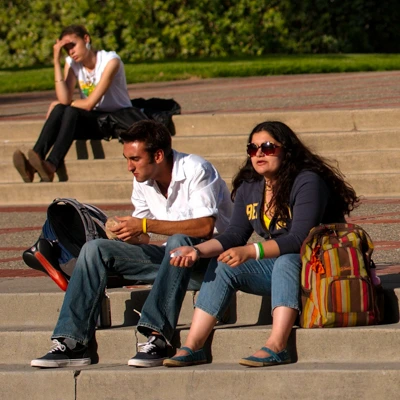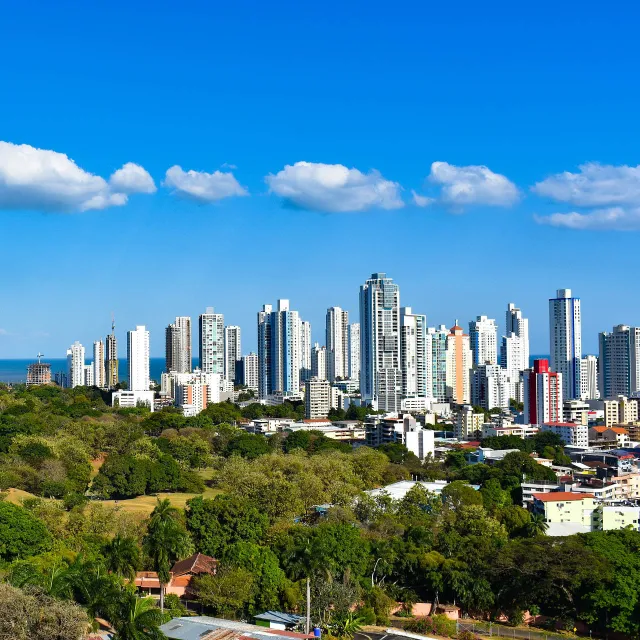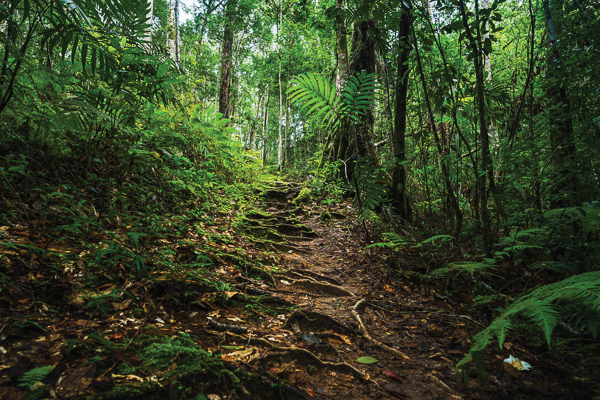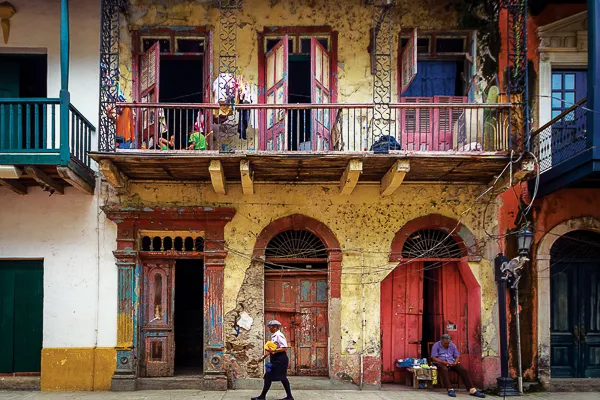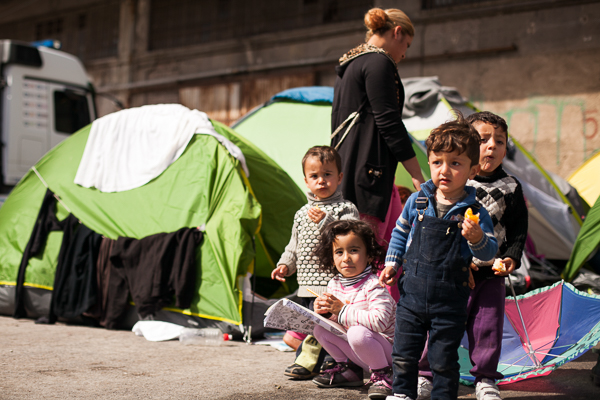Grief Transformed by Community
Venezuelan Refugees Find Family in Panama

Could we have a Christmas Eve service this year?
Scott and Meghan Dillon had missed the service that they had loved when they were in the U.S. When they were church planters in Peru, Christmas Eve services were met with little enthusiasm. Instead, in most of Latin America, Christmas Eve is a highlight of the family calendar with gifts and a late-night dinner.
Now in Panama City, Panama, working with a new congregation, one of Scott’s elders, William, actually requested a Christmas Eve service. Scott planned something meaningful, brief, and early in the evening. After the service ended at 8:00 p.m. Scott suggested it was time for dinner to close out the evening.
“William had a very different Christmas Eve celebration in mind,” Scott says.
William Contreras and his wife, Sol, refugees from Venezuela, had planned a family-style celebration for the church with games and activities, food, and a gift exchange. It was meaningful, but not brief. The Dillons finally went home around 1:00 a.m.
William and Sol know the ache of loneliness for refugees and others who have left homes and cultures. They know what it is to be alone when they once sat at a crowded table.
The Contrerases now offer an invitation to a new community that they received and then embraced at Iglesia Comunidad de Cristo. Along with the ache, they also know the surprise and joy of being knit together in a new family through the gospel.
Scott and Meghan, along with teammates Ross and Angela Floyd, moved to Panama City in 2022 to serve the church plant in a central city neighborhood. The team also includes Eric and Megan Kelly, who partner with rural Indigenous church leaders in addition to supporting the work of the city church.
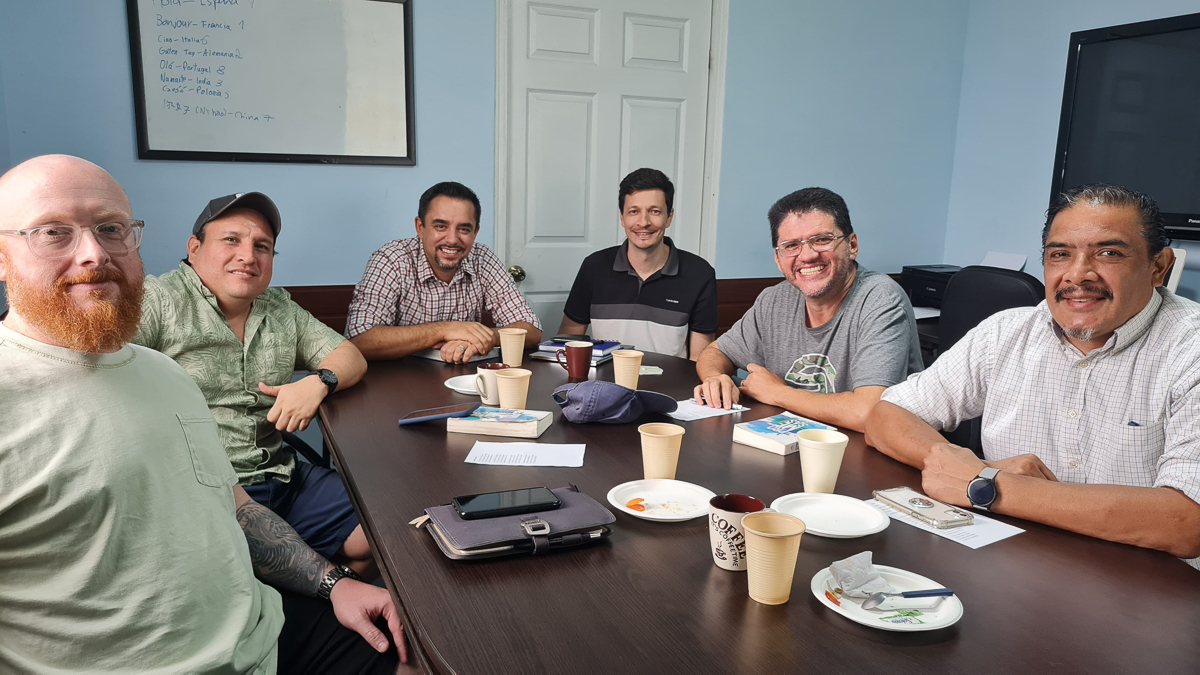
This grieving of what was lost and reweaving something new is a pattern the Panama City team sees repeatedly as ICC, comprised largely of Venezuelans, becomes a new family.
The team also sees this young church flip the common script. They are immigrants looking for ways to serve and witness to their host culture.
They are serving sacrificially in a town that values financial hustle.
Foreigners Welcoming Foreigners
William and Sol’s path to faith started with Easter eggs.
They had been in Panama City for just a few months and went to a park so their energetic 8-year-old could play, William said. It was Holy Week and a group of American and Brazilian missionaries had organized an event with food and games for children. Their son joined their Easter egg hunt.
The missionaries were foreigners like William and Sol, “so we felt comfortable,” William wrote in an email interview. One of the women struck up a conversation.
“I don’t remember what she said,” William continued. “I remember that she simply listened to our story and our heavy burden of the political stress of Venezuela. We were so relieved to talk about the struggle of starting over in another country.”
William and Sol were surprised but excited when the conversation turned to spiritual topics. “We grew up in culturally Catholic homes and didn’t talk about faith.”
They exchanged phone numbers with the missionaries, and then visited a Bible study at the home of then-MTW team members Marc and Sam Summers.
This step was hard to take, William said. There is a stigma against Protestant Christians in Venezuela, he added, but they wanted to learn English and loved both the comfort they received and the international community they were invited into.
“We began to learn the truth written in the Bible,” he said. The discussions allowed for questions and doubts, which were many, and sparked an intense curiosity to know the God described in the Bible.
“More than that, we saw in these missionaries a humility and love for foreigners, which for us at the time was inexplicable.”
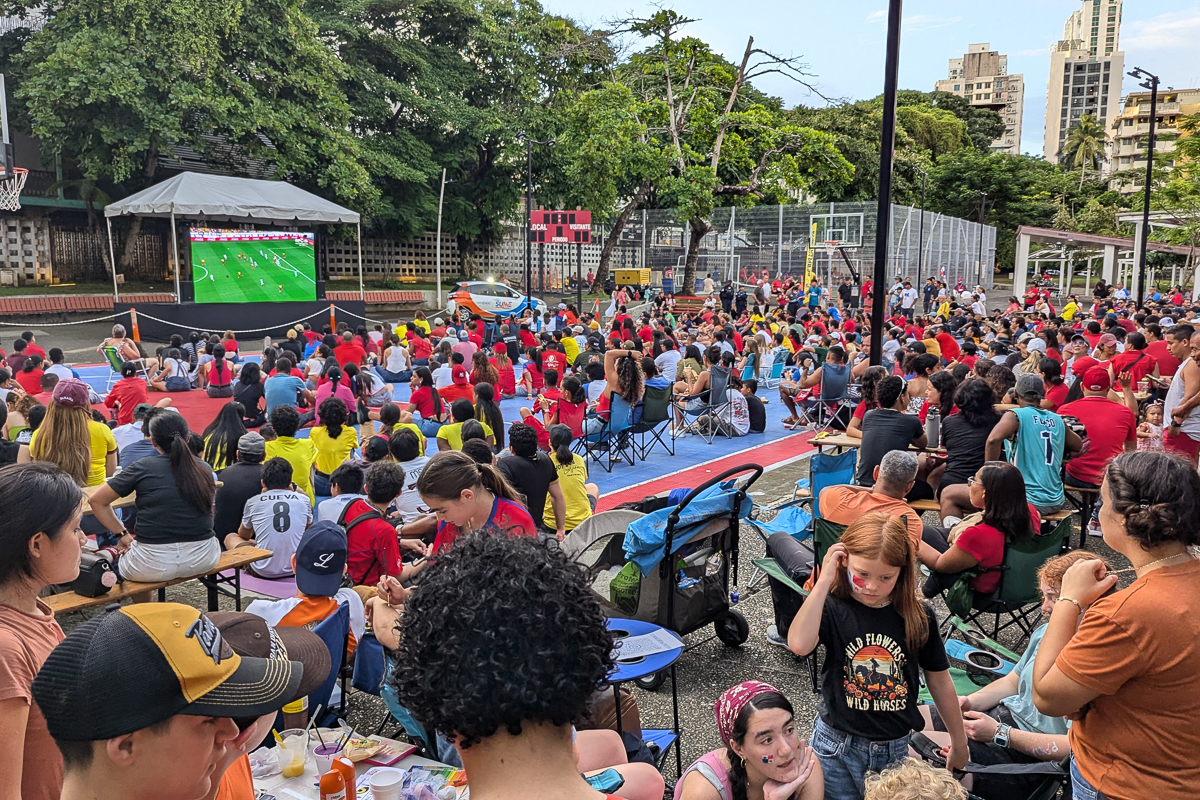
Finding Connection in the Park
Scott said stories like William’s share common threads with most of their small congregation. Many are from Venezuela and their story with the church often began in the Andres Bello park in their neighborhood.
Hospitality is a huge piece of Latin culture, Scott said. In Peru, the sacred spaces were people’s homes. But here, it didn’t seem as though hospitality—being invited into someone’s home—was a strong value.
Looking closer, hospitality isn’t missing, he said. It happens in public spaces. And one of God’s gifts to ICC is the local park.
“If you trace almost any of the stories of our people, there is some touch point to the park.”
People come into this neighborhood because it is a social park. They are looking for connection. The park has been a surprising key, not just a place to meet people but to deepen friendships.
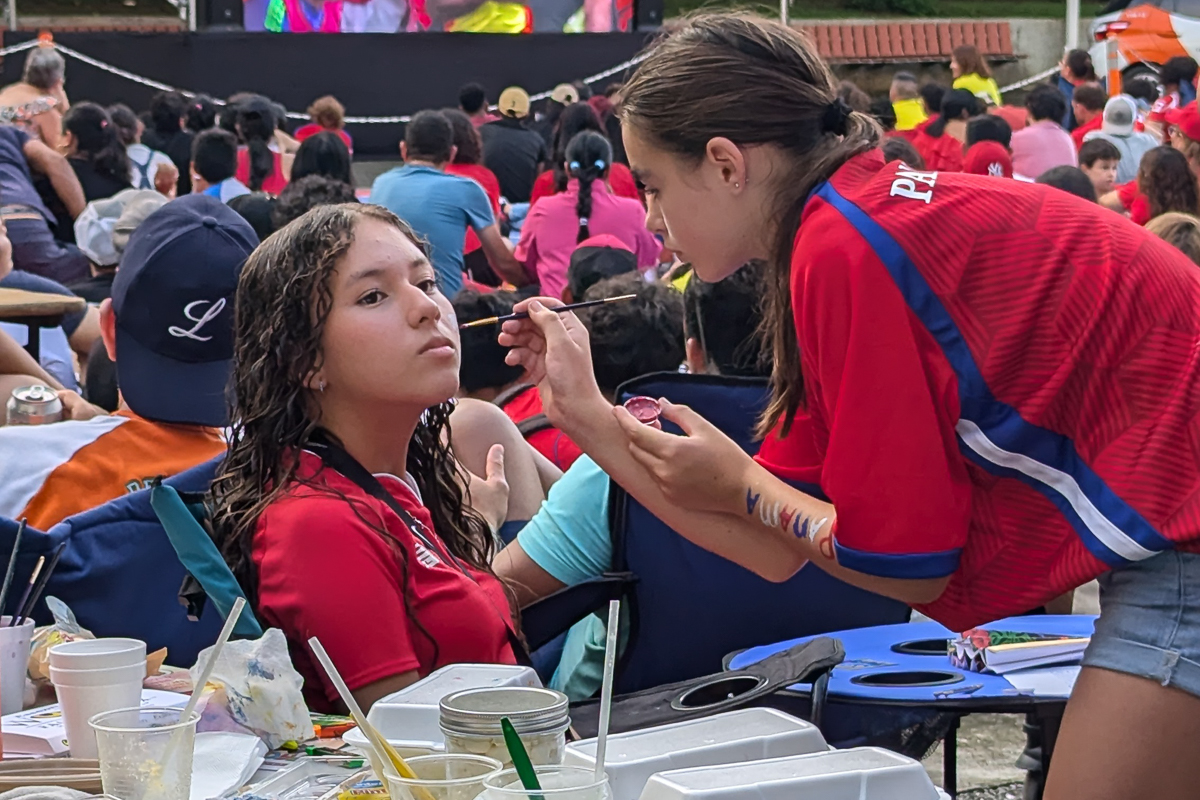
“So the church is intentional about spending time there,” he said. “ We’ve passed out water, or just started talking with people.” As a self-described “outgoing introvert,” Scott wouldn’t try that in many other places—too awkward. But it’s expected here, he said. Plus, his dog Baxter makes a good conversation starter.
Public hospitality is another distinctive in the nation’s capital that is already wildly different from other nations in the region. Its geography makes Panama a conduit for both the wealthy and the desperate.
A Strategic Country for Cultural Confluence
“It would be impossible to accomplish such a feat.” – papal secretary to Rome in 1538, on the idea of a Panama canal.
The power dynamics of European exploration, riches extracted from South America and sent to Spain, and the California Gold Rush have fueled the imagination for a shortcut around Cape Horn for centuries.
Was there a way to shave off the 8,000 nautical miles of sailing around South America?
And could that shortcut be through the mountainous ribbon of land that is now Panama?
Vasco Núñez de Balboa explored the isthmus in 1516 and sent word that only a narrow strip of land separated the Pacific and Atlantic oceans. But in 1534, the royal governor of Panama advised Spain that building a canal would be impossible.
The French attempted construction in the 1800s but had to abandon the plan. The U.S. government picked up the project and finished construction in 1914.
Today, approximately 6% of all global trade flows through the canal, bringing the world with it.
“Who isn’t in Panama?” Scott asked.
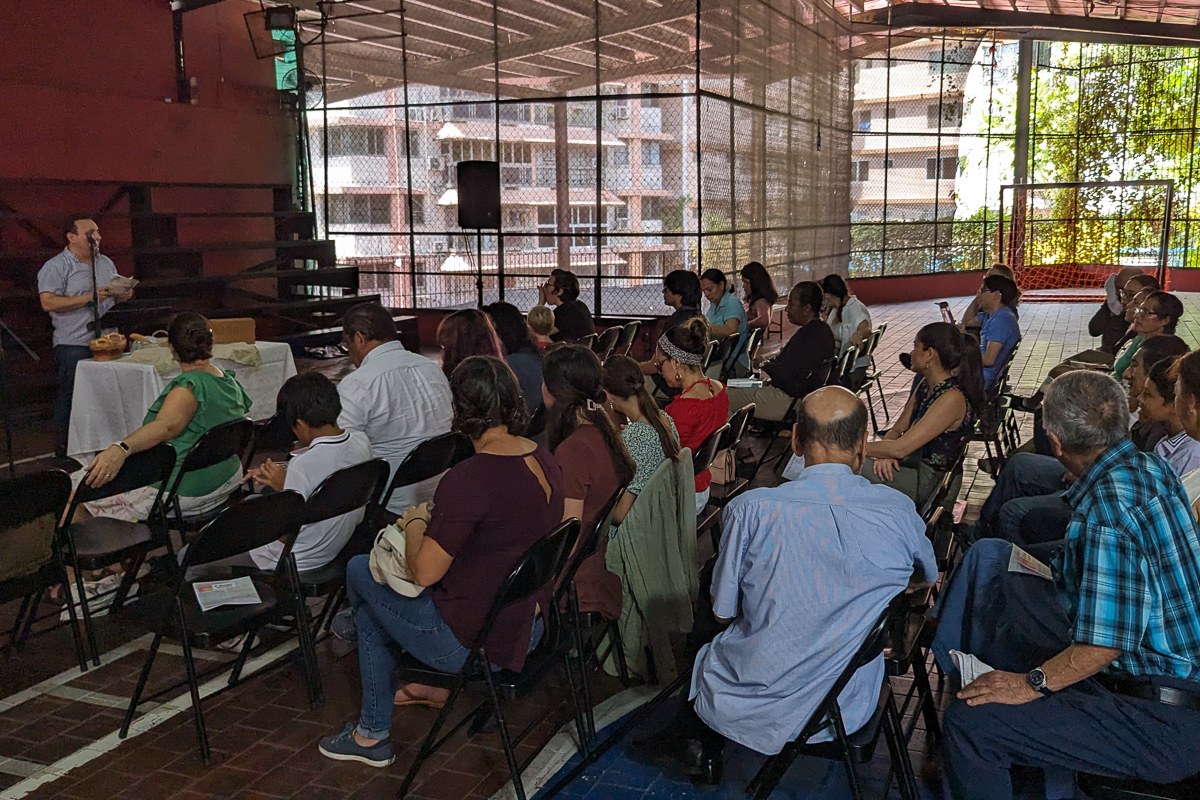
Since Panama has been a trading hub for centuries, it is a strategic country for almost any industry. Its history and architecture reflects the different cultures that have been here for hundreds of years.
Now, China and India are investing heavily in infrastructure, bringing more expat residents—the third and ninth leading immigration source countries—and with them Buddhist, Hindu, and Baha’i temples.
But the number one country of immigration is Venezuela, which in 1970 was the richest country in the region and one of the 20 richest countries in the world.
Through politics and world events, its economy went into freefall in 2014. Now the nation is in shambles, and refugees pour out of the country, either to bordering countries or north to the U.S.
Its recent prosperity means many Venezuelans arrive in Panama City already educated with work experience. Those who can afford it take a ferry. Those who can’t have to cross through southern Panama through the treacherous Darien Gap.
Those who can stay, stay to make money, Scott said.
“Panama City is where people in the region come to get rich. But the church founders laid an excellent foundation for seeing the church as a family. I think it speaks heavily that this small church in a city that values economic success is finding ways to serve,” he said. Now they are looking for ways to connect to their Panamanian neighbors.
People moved here originally for prosperity and then found mission, giving their time and money.
“That might work if we were a prosperity-gospel church,” Scott said with a laugh. “But we know it is the Spirit at work.”
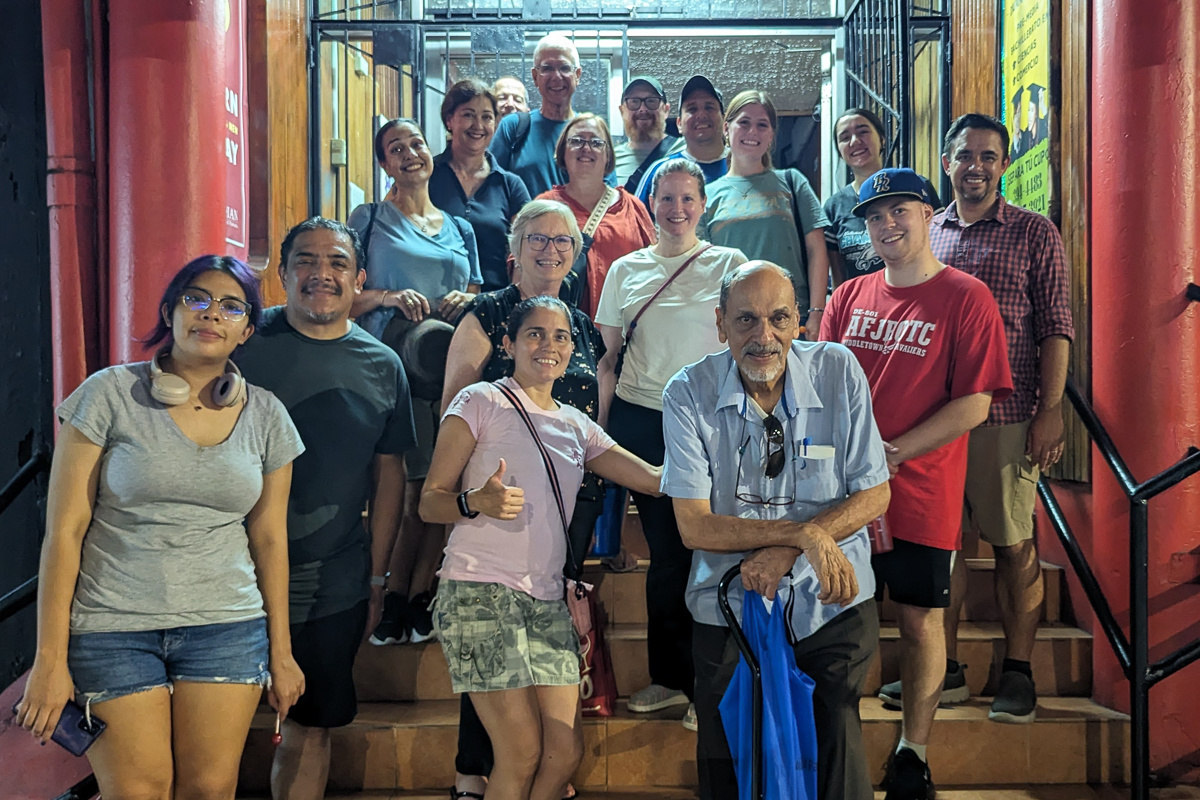
Awakened to a New Calling
William and Sol are exploring a new way to serve.
William lost his job of six years in February. “I started knocking on doors of different businesses, praying ‘Lord, just give me an interview.’”
A few weeks later he was invited to give his testimony in Guna Nega, a village behind a landfill only 15 minutes from the city’s skyscrapers. Most of the houses are made from discarded material from the city and the whole village smells of trash.
But the smells and the colors grabbed his heart and stirred memories of growing up in a similar place.
It awakened a new calling to connect with the people there.
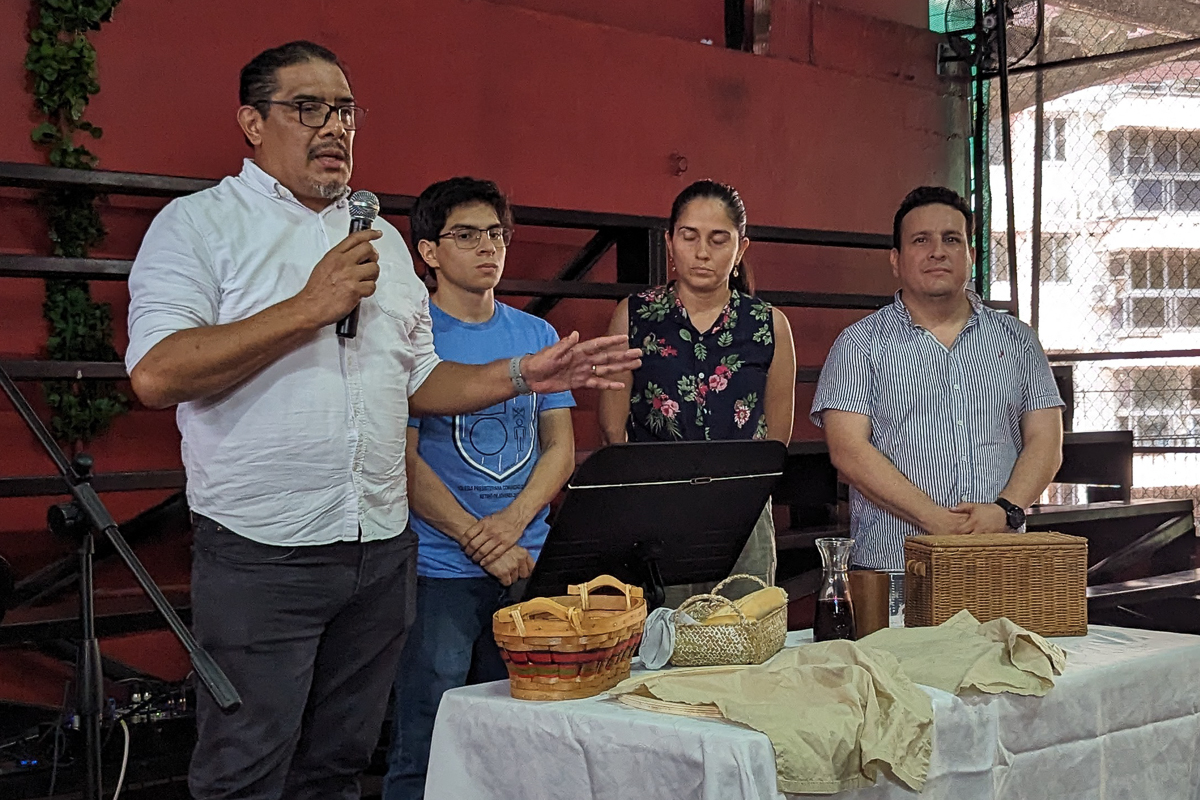
“When I looked back, I saw that God, from the moment I changed my career plans from military to teaching, was preparing my way. I felt an incredible love because I saw that God had always accompanied me, even before I confessed His name.”
Psalm 139 is William’s favorite psalm, reminding him of how he is wrapped in God’s provision. “Now I want to use my life for ministry and help others find and use their gifts in the kingdom of God.” William is now under care to become a teaching elder, in addition to a ruling elder, and is taking seminary courses to prepare for pulpit ministry.
“We are very grateful that God allowed us to know Him through new people filled with Him, whose lives were the greatest testimony, and then to go and know Him in the Scriptures, where we fell in love with the gospel and the work of Christ on the cross.”
